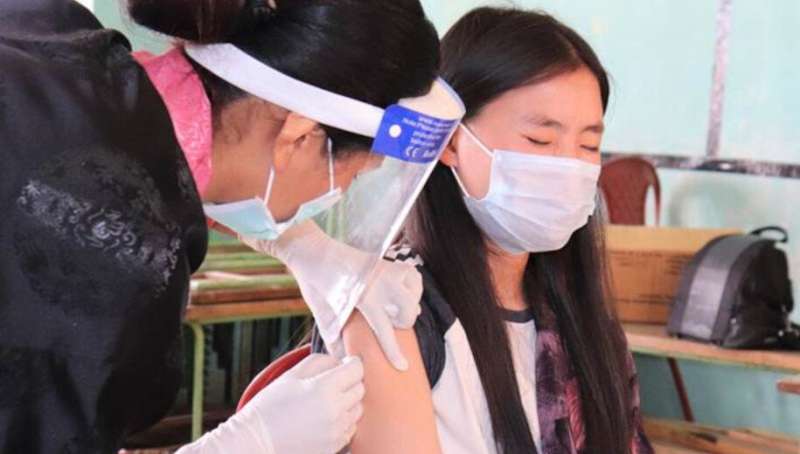
Bhutan is following up on its success in vaccinating 90 percent of its adult population against COVID-19 by embarking on a plan to immunize children in the 12 to 19 age group.
Immunization of children started in the high-risk southern areas of Bhutan that border India—a country now battling a devastating second wave of the pandemic.
So far, 58,000 children in 13 districts have received at least one dose of vaccine. Children in lower risk areas are expected to receive their first doses in September, according to health officials. Around 30 percent of Bhutan’s population of 770,000 people is below 18 years of age, according to the National Housing and Population survey 2017.
Yeshey Pelden, program officer with Bhutan’s public health department, tells SciDev.Net that children in this age group “are being immunized with Pfizer and Moderna vaccines.” Both vaccines were released under emergency use, she says.
Yeshey says the decision to approve the Moderna vaccine was based on that of the European Medicines Agency while in the case of Pfizer the authorisation accorded by the US Food and Drug Administration was followed.
Bhutan’s health secretary declined to comment on Bhutan’s decision to vaccinate children or share details of the vaccination coverage plan.
However, Prime Minister Lotay Tshering had stated earlier that Bhutan planned to achieve herd immunity. “We require vaccinating more than 70 percent of the total population considering the infection rate of the virus,” Tshering, a medical doctor, said in a televised public statement last month.
Bhutan started off the first phase of the mass vaccination drive with around 500,000 AstraZeneca vaccines donated by India. The first dose campaign took off on 27 March and within two weeks 93 percent of the adult population or 480,181 people were immunized. But when India was hit by a devastating wave of the Delta variant of COVID-19 in March, it suspended supplies to other countries.
After a gap of almost four months, Bhutan secured vaccines from the US and EU and the nationwide vaccination program resumed on 27 July. Within a week, 90 percent of the eligible adult population were fully immunized.
Apart from India’s contribution for the first phase, Bhutan has received 500,000 Moderna vaccine doses from the US through the global COVAX Facility’s vaccine-sharing program, 250,000 doses of AstraZeneca vaccines from Denmark,100,000 doses of AstraZeneca vaccines from EU countries like Croatia and Bulgaria, and 50,000 doses of Sinopharm vaccines from China.
The country has also passed on 230,000 doses of AstraZeneca vaccines to neighboring Nepal following a request made in the first week of August.
Bhutan’s success stands out in the rest of South Asia which is struggling to cope with a second wave of the pandemic. UNICEF has described the feat as a “success story” and the country as a “beacon of hope” for other countries in the region.
Source: Read Full Article
